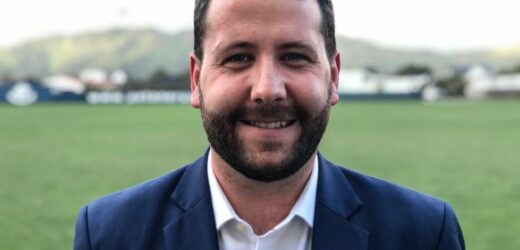Hutt City Mayor Campbell Barry is tipped to take over the Wellington Water Committee as chairman, marking a new era in the region’s infrastructure crisis.
“We really need to be open an honest about the state of our infrastructure and the problems we are currently facing in overcoming those issues”, Barry told the Herald.
Hutt City councillor David Bassett resigned from the chairman role in March after eight years at the helm.
He said it was an appropriate time to stand down as bedding in the Government’s Three Waters reforms would take a number of years to achieve and the region would need continuity of governance over that time.
The Wellington Water Committee is meeting at 1pm today, and members will elect a new chairperson.
The committee is made up of representatives from each shareholder council in Wellington Water- a company that manages water assets across the region. There are also two mana whenua representatives.
Barry said he anticipated having support from his colleagues for the chairman role.
He said councils had come a long way in the past 18 months with historic underinvestment in assets finally being highlighted and responded to in Long-Term Plan budgets.
Work still needed to be done on getting public buy-in for a problem that could well take more than a decade to fix, Barry said.
He said workforce deliverability issues would be the next big challenge for councils.
“Putting money in a budget line isn’t going to fix a water leak or replace a pipe.”
Water New Zealand’s latest National Performance Review shows, on average, only 77 per cent of budgeted capital expenditure was spent in the past financial year.
Chief executive Gillian Blythe said the lack of people to deliver projects had been widely acknowledged as a key reason for this gap.
The review revealed the workforce was struggling to keep up with existing levels of growth despite a 25 per cent increase in the number of people employed in the past four years.
Barry said the Wellington Water Committee could play a key role in partnering with education providers and the private sector to plug the gaps.
“I want a young person coming out of school and seeing the opportunity in their local community of a good paying job to move into, which ultimately is going to help build the foundations of our cities.”
One of the first things Barry plans to raise with the committee is the controversial issue of water meters.
It’s clear there are varying views across the councils, Barry said.
“Personally my view is that I don’t support volumetric charging. However, there are some real benefits around water education and conservation and keeping a tab on water use.”
Wellington Water is keen to implement water meters.
This is because demand for water could outstrip supply in the region by as early as 2026, with the population growth rate having exceeded earlier forecasts.
Building a new water source would cost about $250 million.
Barry has also recently secured a seat at the table of the Three Waters Steering Committee after councillors voiced concerns Wellington was being left out.
The committee was established to ensure perspectives, interests, and expertise of both central and local government are accommodated as the Government’s reform programme progresses.
There were two representatives from Auckland Council on the committee, one from Bay of Plenty Regional Council, and one from Christchurch City Council.
In total there were 15 representatives from councils across the country, but not one from Wellington.
“It’s really important that we as a region have a voice at the table”, Barry said.
He said it was important the region could influence Three Waters reforms through its experience with the Wellington Water model.
Source: Read Full Article

/cloudfront-ap-southeast-2.images.arcpublishing.com/nzme/WE2TFIQMLDJTTJAQWKOUS7PFIU.jpg)
/cloudfront-ap-southeast-2.images.arcpublishing.com/nzme/JWGRJ2JDOQLUKVJNQIZXYFUYYY.jpg)
/cloudfront-ap-southeast-2.images.arcpublishing.com/nzme/YSNEDX5BBVZHQ3DZRL5SPSDHNU.jpg)

